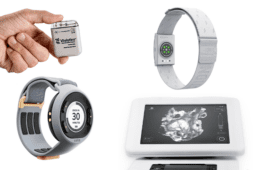 The Cullen Foundation and The Institute for Rehabilitation and Research (TIRR) have awarded grants to a robotics research project by the University of Houston (UH) and The Methodist Hospital Research Institute (TMHRI).
The Cullen Foundation and The Institute for Rehabilitation and Research (TIRR) have awarded grants to a robotics research project by the University of Houston (UH) and The Methodist Hospital Research Institute (TMHRI).
The Cullen Foundation has directed $495,000 in philanthropic support to the research project and the TIRR Foundation has given $200,000 to purchase Rehab Rex, the latest version of a robotic exoskeleton patients use to “walk.”
UH researcher Jose Luis Contreras-Vidal, professor of electrical and computer engineering, is working on perfecting a non-invasive brain-machine interface (BMI) technology that a patient can use to operate an advanced robotics system such as the exoskeleton.
The BMI works by interpreting brain waves that allow patients to control, with their thoughts, robotic legs and below-elbow amputees to control neuroprosthetic limbs.
Contreras-Vidal has partnered with Dr. Robert Grossman at TMHRI on the research project. Initial testing has begun at UH and broader clinical trials will be conducted at Methodist Hospital, possibly as early as this summer.
“This research project is a unique opportunity that can only happen because of the collaboration between UH and Methodist,” Contreras-Vidal said. “We are thankful to the Cullen Foundation and the TIRR Foundation for recognizing the importance of this project and how it can help improve the lives of people with mobility impairments.”
The research team has been mapping brainwaves and programming them into computers at UH’s Laboratory for Noninvasive Brain-Machine Interface Systems. Researchers record brain signals in a non-invasive way by using a scalp electroencephalogram (or EEG), a skullcap fitted with electrode sensors that touch the scalp.
When set into motion, the exoskeleton uses thoughts to trigger repetitive motions and retrain the brain’s motor networks. The ultimate goal is for the user to wear a headset similar to Bluetooth wireless technology to operate the exoskeleton.
During the training or calibration phase, the exoskeleton is generally guided by a joystick controlled by the user or the experimenter. Once the “translator” between movement and brain activity is trained, the user can use his thoughts to control the device.
Grossman said the Cullen funds will help advance basic research into how the brain mechanisms work.
“We are trying to determine where in the brain are the signals that drive the robot, that make it turn left or right for example,” Grossman said. “We want to identity that source.”
The TIRR grant will be used to purchase Rehab Rex, which is named after its manufacturer, New Zealand-based Rex Bionics. The exoskeleton should be finished and delivered to Houston this summer.
“This is very exciting because we have been working with Rex Bionics on the new exoskeleton, making it more flexible and user-friendly and interfacing it with the BMI,” Contreras-Vidal said. “We have helped improve it through our research.”
A version of Rehab Rex was demonstrated recently at the 2013 International Workshop on Clinical Brain-Neural Machine Interface Systems, which was hosted by TMHRI and UH and held at Methodist. The workshop was supported in part by the National Science Foundation and the National Institute of Neurological Disorders and Stroke, with additional support from Texas Medical Center Institutions and industry. International speakers from academia, government, industry, medical centers and end-users gathered at the workshop for discuss the challenges and potential solutions regarding the development of interface systems.
For more information, visit University of Houston.




